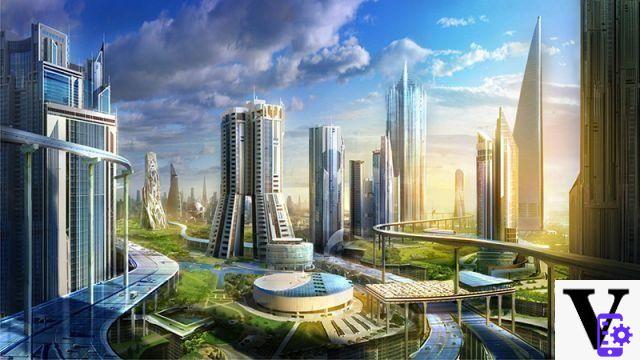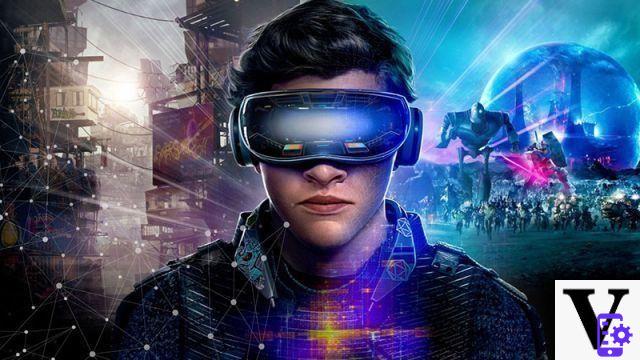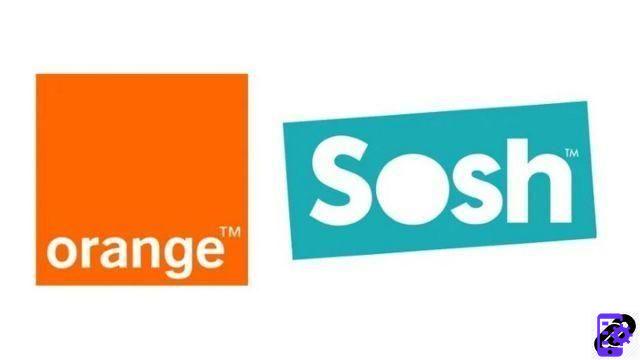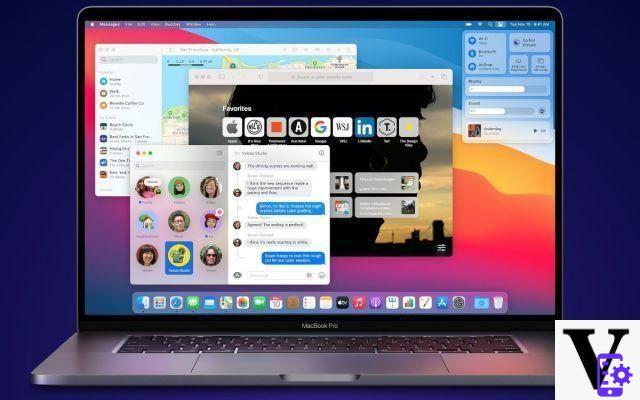"What will the technology of the future be like?" it's a very difficult question to answer. Despite all the difficulties of 2020 we are in fact still in a historical period of great yeast, in which our world can still transform itself in a short time. Indeed, paradoxically, the events of last year were a very strong propellant to give a further boost to progress. And so, answering the question with which we opened becomes very difficult. But we like challenges.
- Why is it so difficult to talk about the future of technology?
- The technology of the future, seen by trend
- I trend
- The technical side
- The future of technology is the future of the economy
Why is it so difficult to talk about the future of technology?

If you are reading this article, you have access to an internet connection. Sure, there is the possibility that a friend of yours has printed it and brought it to you by hand (or mailed it if he wants to be really romantic), but we can consider it negligible. Not only that, but it is also very likely that it is reading it from your screen smartphone, increasingly the main window on the world. But this has not always been the case and the surprising thing is that, most likely, you know very well too.
Smartphones and the Internet are two tools fundamental for our company. They have become an indispensable part of everyday life. Of the five richest companies in the world, four (Amazon, Alphabet / Google, Facebook and Apple) are involved directly with one of the two and one (Microsoft) indirectly. Dictatorial governments control Internet access to maintain power and in democratic ones the ban by a Head of State from social media becomes a media case.
But a good percentage of us not only remember an era when smartphones and the Internet were not so pervasive, but even one in which they just didn't exist. Even more, we can easily recall when they were still perceived as a technology of the future, a concept almost science fiction. It took twenty / thirty years to pass from a remote dream to a reality that we cannot practically give up.
And these are just examples that clarify though why it is so difficult think about the future of technology today. Our society is in constant transformation in this respect. What we could define today a remote idea, tomorrow we could have it in hand. Progress has never been faster and it seems to accelerate even more every day.
As mentioned, however, we like challenges and difficulty is not enough to make us give up.
The technology of the future, seen by trend

The key to addressing the problem is to avoid rattle off products and promising projects. There are definitely ideas circulating that they might be revolutionary, but it is difficult to understand which ones will really be. Some may turn out to be unattainable (even if only for economic reasons), too far ahead of their time or, vice versa, find themselves overtaken by other concepts and all the articles on “This will be the future of technology” will make you smile. A lesson that those who have passionately followed the development of Google Glass will remember well.
However, there is something that can be understood from these individual products and that can be extrapolated for predictions with a good degree of reliability: trends. If it is difficult to understand what the key products of the technology of the future will be, we can at least say in what direction we will find them. The risk of the unexpected that changes everything (one by chance: the emergence of a global pandemic) always exists, of course, but we can be more confident.
What will be the technology trends of the future?

Environment and ecology
So what will these trends be? One of the main ones will concern the environment and ecology. Although there is some resistance, the direction traced is evidently towards the development of more sustainable forms of energy or technologies that make their exploitation easier or tools to improve energy efficiency. In short, the struggle proceeds on two fronts: on the one hand we find a way to consume less, on the other hand we try to 'clean up those consumptions which we cannot give up.
It is an obvious direction, with many companies and realities engaged in this direction. Even those who are not active in developing this type of technology imagine their future increasingly sustainable, creating a rich market for these tools. If once the aim was to be zero-impact, now there are even companies (even large ones) that are planning a future with negative consumption, to get to cancel the pollution produced in the past.
Social commitment
By broadening the perspective, it is possible to frame the environmentalist drive in a broader framework, of social commitment. Corporate Social Responsibility has become a very important driving force in marketing and is an attitude aimed at making a contribution to society in every area.
The great challenges of the next few years are those of health protection (accelerated by the events of recent months) and the overpopulation. And so new technologies are developed that improve ours resource management, which allow to bring nourishment and water even in difficult areas. The possible developments here are incredible: from floating farms to synthetic meat, the possibilities are immense and it is not certain that insects are really the food of the future, as is said every now and then.
We also think about the more technical side

These are possible trends from a thematic point of view, but wanting to get more technical, what will the technology of tomorrow be like? What are the fields of development that will expand? Just look around with the right attention to get an answer, but also more than one.
For example, we cannot ignore the ever-increasing potential offered byartificial intelligence. We are now able to develop increasingly refined tools, but which above all (and here is the real leap in quality) improve themselves. Every step forward made in this direction is worthwhile ten times as much and gives life to a technology that in the future can be applied in an incredible number of fields, from assisted driving to data processing to planning, logistics and much more.
This goes hand in hand with developments in the field of robotics. The application of AI and machine learning helps bring the dream of automate tasks of all kinds. And beyond simple tools to make life easier, such as more elaborate versions of the classic robot vacuum cleaners that we now know (but which until a few years ago they were science fiction, let us remember), could have very important social benefits. There are those who are developing robotic guide dogs for blind people, for example.
And the last trend to consider is that of virtual reality. Futuristic, fascinating and still (unfortunately) too expensive to have a truly complete diffusion, theoretically opens the doors to unique possibilities. They range from simple entertainment to the possibility of using it for remote training and assistance, but also to help overcome handicaps. And if so far we have limited ourselves to simulating only two senses (hearing and sight), we can only imagine where we could arrive by turning to the other three as well.
The future of technology is the future of the economy, but are we sure it will also be sustainable?

We are envisioning a future in which technology, specifically tools such as artificial intelligence, robotics and virtual reality, will be used to to reduce the pollution ed to eliminate hunger in the world. Definitely an image optimistic and some might think it is too much. The most cynical might argue that it is a world that it will never happen, because the only driver of society is profit. But that's not all that true.
On the one hand, because technology has led to a certain democratization in the economy. Entry costs have dropped and it is easier to launch your idea on the market. And so, it's difficult to hinder the spread of new technologies for profit reasons: if I can sell my solar panels via Facebook, it will be much harder for the oil giants to stop me from doing so. The door has opened for entrepreneurs who are interested not in maximizing profit but in having a positive social impact.
And even if it didn't, it is not said that the most 'despicable' alternative is necessarily the most profitable. More and more the public demands a certain caution social and ecological to businesses. Perhaps it is because we are starting to see the negative consequences of reckless policies (on the environment and society), but whatever the reason, the fact remains that the market is ready to reward virtuous companies with higher expenses. And therefore respecting the planet becomes a way to earn more, no less.
Of course, we cannot take this brighter future for granted, rather. However, there is the possibility not only to hope, but also to play an active role in shifting the scales. We have exceptional power as consumers and with that we can shape the future of technology and our society. Let's not waste it.
Discount
 Corporate Social Responsibility
Corporate Social Responsibility
- Blowfield, Michael (Author)




















![[Review] Samsung Powerbot VR7000: the robot vacuum cleaner from Star Wars](/images/posts/6bc44de38605b5c0fa12661febb1f8af-0.jpg)





